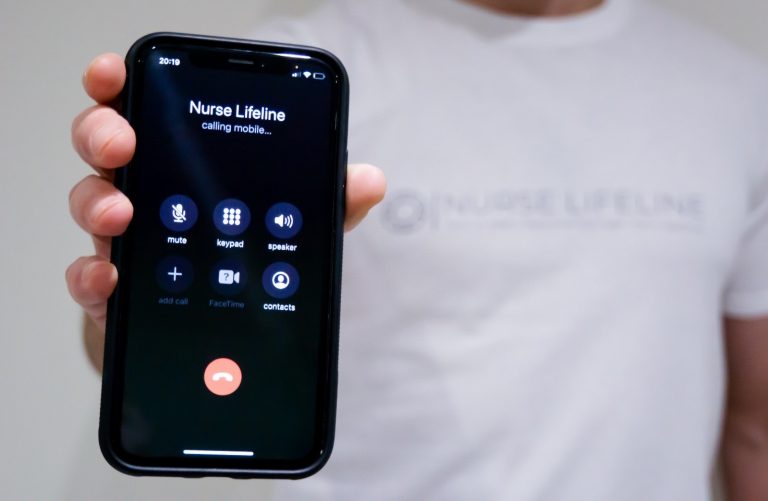After a new national listening service has been introduced by front-line staff for front-line staff to help cope with pressures caused by the pandemic, Quadrant Health looks at how technology can help people’s mental health.
Nurse Lifeline is a registered charity set up to improve the wellbeing of primary caregivers, who have been under extraordinary pressure over the last 18 months.
The phone service offers free of charge confidential support to all nurses, midwives, healthcare support workers and their family and friends.
Being the first service to be rolled out in the UK, Nurse Lifeline is paving the way in showcasing how technology can be used to improve the lives of healthcare workers.
It has been developed by a small group of nurses and midwives who continue to work on the frontline while manning the phones as volunteers.
The charity can be contacted from 19.00-23.00 Monday to Friday on 0808 801 0455.
Huge responses since the phone service launched
Kiera Dovey, Nurse Lifeline Co-Founder and Critical Care Nurse, says the team has been overwhelmed by the positive response to their call to action for volunteers.
Continuing, Quadrant Health heard: “It’s been a pretty tough ride. We’ve navigated this process between full-time clinical roles in ICU, out on the streets and the labour ward. We’ve held bleary-eyed meetings in between night shifts with CEOs of other charities, written funding proposals during breaks from our PPE and taught ourselves about the intricacies of charity legal requirements, amongst many other things.
As a result, we now have a wide network of nursing and midwifery volunteers on board who are trained in support skills, and we know that if we can help just one person to keep going, it will all have been worth it.
The mental health of NHS staff 23% worse than the national average
Mental health in healthcare workers is heavily reported as being higher than the national average. The use of technology is attempting to bridge this gap. Despite this though, the level of suicide risk in nurses is approximately 23% higher than the national average, with female nurses particularly affected.
Looking more widely, the charity Mind has also found that there was a 15 per cent increase in referrals from March until July. A total of 2,276 more urgent and emergency referrals were made in July alone this year compared to the same month last year.
“Who is better placed than nurses and midwives at ground level to be the driving force for such a service and at the heart of implementing such?”
Many nurses have been running on empty even before the pandemic begin, so Founder Natalie Greening was particularly keen to address this issue since COVID-19 hit.
She explained: “It’s hard for people outside of the health service to understand just how debilitating the sustained emotional stress has been on health workers’ own mental wellbeing, which is why developing a peer-led service is so empowering: we find ourselves connected by a common experience and a shared understanding of what we’ve been through.”

